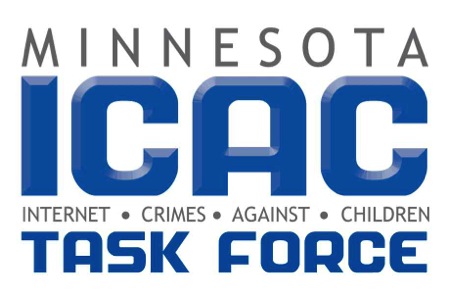What is ICAC?

The Minnesota Internet Crimes Against Children (or ICAC) Task Force works with law enforcement agencies throughout Minnesota to investigate and prosecute those who exploit children on the Internet. The ICAC Task Force also works to educate parents and children about potential online risks.
Report suspicious online conduct involving children to the National Center for Missing and Exploited Children (NCMEC) CyberTipline or call 1-800-THE-LOST, (800) 843-5678.
What Does ICAC Do?
The ICAC Task Force helps state and local law enforcement agencies develop an effective response to cyber enticement and child pornography cases. This help encompasses forensic and investigative components, training and technical assistance, victim services and community education.
The ICAC Task Force is a national program of excellence for investigating and prosecuting online crimes against children. Learn about ICAC's history.
Criminal Justice Agency Resources
The ICAC unit works with criminal justice agencies across the state on internet crimes investigations. This map shows affiliate agencies which assist in investigations. A nearby affiliate agency can be a point of contact when a crime of this nature is uncovered in your jurisdiction.
Become an ICAC Affiliate Agency
To get information on becoming an ICAC investigative or forensic affiliate, call (651) 793-7000.
Training Opportunities
The Bureau of Criminal Apprehension provides training for criminal justice agency staff who want to learn more about ICAC-type investigations. The training is provided through BCA Training & Auditing.
Community Resources
The ICAC Task Force, in conjunction with the National Center for Missing and Exploited Children and NetSmartz, has developed downloadable training presentations on Internet safety for children and families. The presentations contain training programs designed for grades K-12, parents, and for community members, and can be used by families, teachers and media specialists to teach Internet safety.

